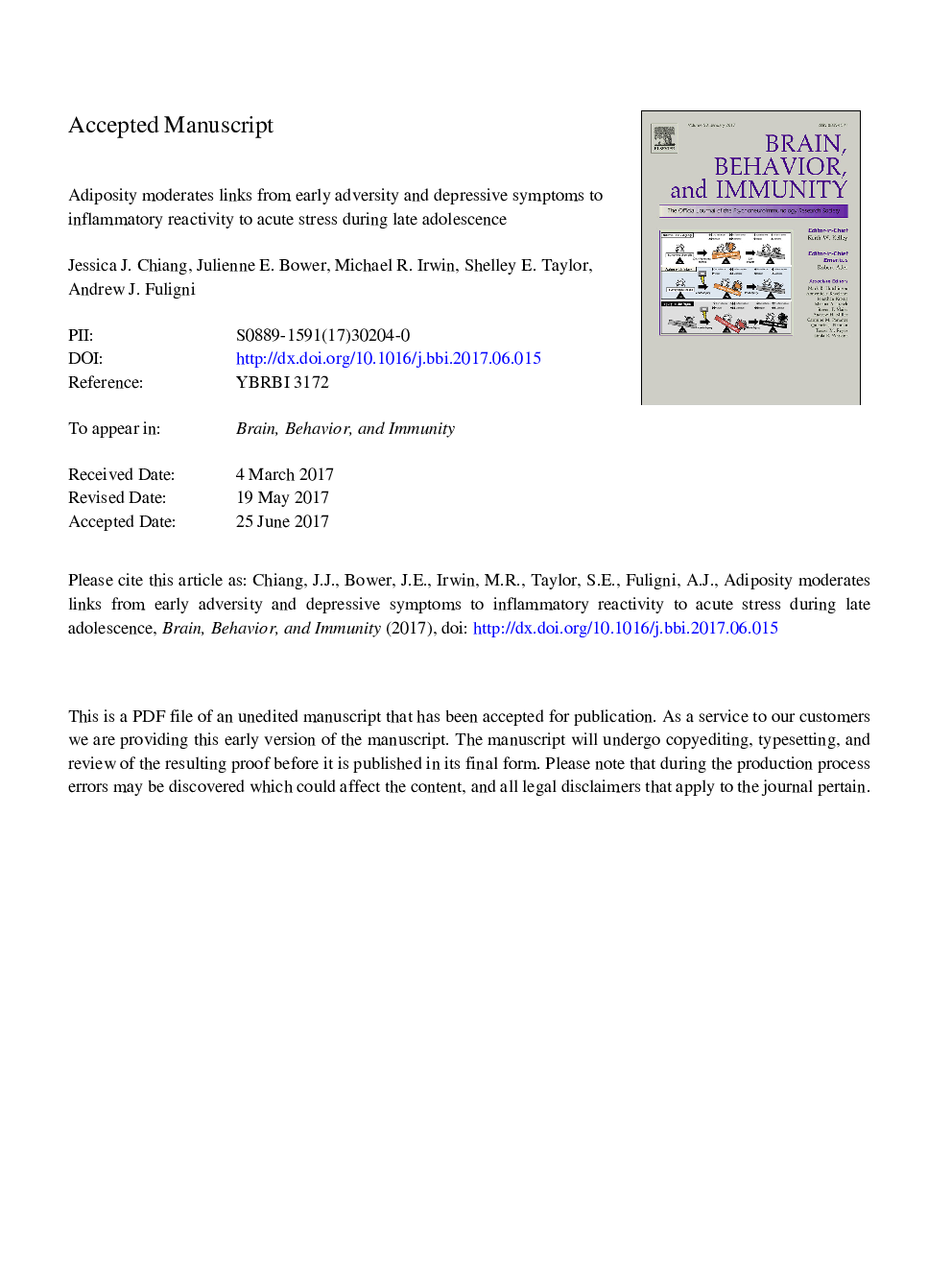| Article ID | Journal | Published Year | Pages | File Type |
|---|---|---|---|---|
| 7279796 | Brain, Behavior, and Immunity | 2017 | 47 Pages |
Abstract
Both early adversity and depression are associated with heightened inflammation. However, few studies have focused on inflammatory reactivity to psychosocial stress and examined adiposity as a potential moderator. Yet, repeated heightened inflammatory reactivity over time is thought to contribute to low-grade chronic inflammation and adipose tissue is a key source of pro-inflammatory cytokines. The purpose of the present study was to examine whether early adversity and depressive symptoms were related to stress-induced inflammation and whether these associations varied by total body and abdominal adiposity as measured by body mass index (BMI) and waist circumference (WC) in a sample of late adolescents. Participants reported on their early family environment and current depressive symptoms, had their height, weight, and WC assessed for adiposity markers, and provided blood samples for IL-6 assessment before and after a standardized laboratory stress task. No main effect of early adversity on IL-6 reactivity to acute stress was observed. However, significant interactions between early adversity and BMI and WC emerged. Greater exposure to early adversity was associated with greater IL-6 responses only among adolescents with higher BMI or WC. The same pattern of findings was observed for depressive symptoms. Additionally, moderated mediation analyses indicated that among adolescents with greater adiposity, early adversity indirectly influenced IL-6 reactivity via current depressive symptoms. These findings contribute to our understanding of vulnerability factors that may amplify the associations between early adversity and depressive symptoms and inflammation during relatively early stages of life.
Related Topics
Life Sciences
Immunology and Microbiology
Immunology
Authors
Jessica J. Chiang, Julienne E. Bower, Michael R. Irwin, Shelley E. Taylor, Andrew J. Fuligni,
